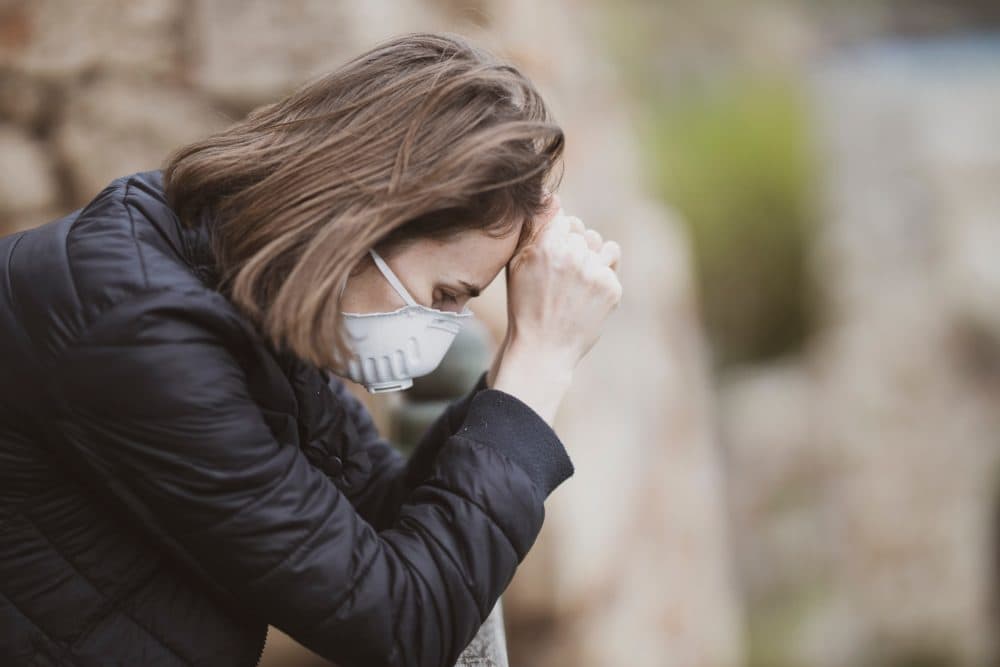Advertisement
Commentary
How The Pandemic Could Help Our Deadly Fight Against Stress

About a week ago, I got a message from a patient of mine, whom I’ll call Ted. A lean rock climber in his 30s, Ted is one of my healthiest patients, but you’d never guess it from our conversations. He goes through periods of worry that he suffers from an undetected disease. Every new symptom becomes a harbinger of impending doom.
Normally, our visits resemble negotiations. He wants every possible test; I want him to consider that his good health might not be an illusion. Usually, we compromise: A few monitoring blood tests, but no full-body MRI.
Two weeks ago, Ted emailed me with another symptom, but what followed surprised me: “My first reaction is to assume this is related to my high level of stress right now.”
Speaking with another healthy young man who struggles with chronic gastrointestinal symptoms, I was again beaten to the punch. “I really think what’s going on right now is just that I’m really freaking out about coronavirus,” he said. This from a guy who’s undergone colonoscopies, specialist consultations and other hassles in search of a cause for his symptoms.
Even in a non-pandemic, non-recession week, about 75% of primary-care visits have something to do with stress ...
As the health-care system and society-at-large scramble to respond to the coronavirus pandemic, long-held norms and practices are being torn up like disposable paper gowns. Answering my patients’ questions, I’ve noticed another big change underway: Patients and providers are finally talking about how much stress is affecting our health.
Even in a non-pandemic, non-recession week, about 75% of primary care visits have something to do with stress and the ways our bodies respond to it — whether it’s insomnia, headaches, stomach troubles, heart palpitations or something else, uncontrolled stress is nearly always a big part of the problem. As providers, we often don’t “treat” stress with the same focus and intent as, say, high blood pressure or migraines. As a recent study showed, we only discuss it directly with patients in as few as 3% of visits.
There are many reasons for this shortfall: Clinicians have so many other things to cover. Patients and clinicians alike may view stress as an immutable fact of life outside the medical milieu. After all, there is nothing I can prescribe to treat a patient’s micromanaging boss, unaffordable rent, strained marriage or declining parent. Perhaps ironically, we all seem more comfortable with the idea that we are level-headed and diseased instead of worried and well.
Since the arrival of COVID-19, however, I see signs of a reframing of our attitudes toward stress. As a psychiatrist colleague of mine said, “For the first time, everybody knows what anxiety feels like.” Suddenly, it’s normal to have stress. To paraphrase a famous bumper sticker, if you’re not stressed out, you’re not paying attention!
This is important, because the science is clear that sustained stress is truly toxic to our brains, hearts, immune systems, fertility and metabolism, among other systems. Stress has been shown to increase levels of Interleukin-6, the immune hormone implicated in some of the most severe cases of COVID-19, as well as so-called “Natural Killer” (NK) cells, which help fight off viral infections. In a cruel twist, untreated worry about COVID-19 might actually be a risk factor for a more severe case of the disease. It’s the worst kind of self-fulfilling prophecy.
In a cruel twist, untreated worry about COVID-19 might actually be a risk factor for more severe disease.
Now is the time to get serious about seeing stress as a health risk, the same way we view high blood pressure or smoking. Evidence suggests there’s a lot we can do to reduce it. This means first recognizing stress and its symptoms -- which vary widely from person to person — in ourselves and our loved ones.
I recommend that my patients suffering from stress and conditions made worse by unmanaged stress limit news and media, and pause to question their most extreme reactions to the latest bad news. For some, it may make sense to set aside time specifically for worrying, as a way of exerting control over anxious thoughts. I also emphasize activities that strengthen resilience, our natural ability to bounce back from stress, particularly physical activity and protected time for sleep. Mindfulness is another powerful tool. Meditation is the most potent and proven form, but any in-the-moment activity will do, such as a walk in nature or a new household project. Finally, staying connected with family and friends is critical, and although social distancing makes this more challenging, the recent explosion of multi-generational video chats is cause for optimism.
The COVID-19 pandemic has wrought an unprecedented level of harm, but as crises tend to do, it has also revealed opportunities. Like a rapid response team sprinting to the bedside of a patient who can’t breathe, we need to run toward our stress, not away from it. The era of COVID-19 has made stress universal, and this unusual moment has revealed an opportunity for all of us to recognize that stress is a health problem worth treating, now and long after COVID-19.
